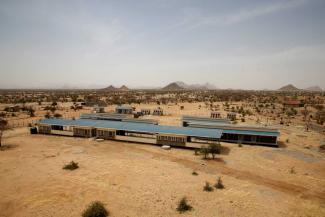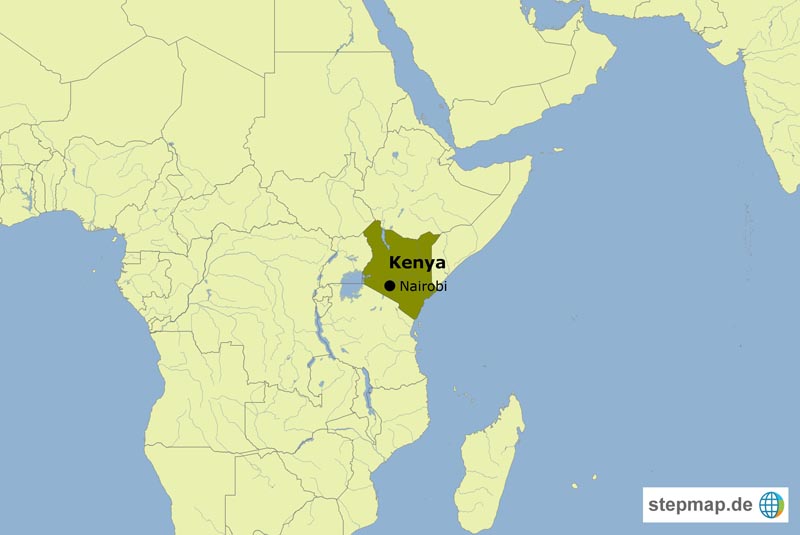Decentralisation
Responding to local needs through decentralisation

What does devolution mean in Kenya and when was it implemented?
Devolution was implemented in 2013 following the enactment of the new constitution in the country in 2010. The new constitution redistributed power by devolving responsibilities from the national government to 47 elected county governments.
How has it shifted decision-making to the counties?
Different counties have unique needs based on local climate, environment, or culture. For this reason, it was the right way to decentralise the government into sub-units where citizens have the mandate to determine their own development structures.
Decentralisation has the potential to address Kenya’s long-standing challenges of regional imbalance, exclusion of marginalised groups and ethnic inequalities, while strengthening self-governance at the local level.
What have been key achievements or positive outcomes of the devolution system?
Much has been achieved since the introduction of this system. Above all, national resources have been evenly distributed among the counties so that each county has an equal chance of growth. Thirty percent of national revenue is allocated to counties based on factors like population, poverty rate, land area and fiscal responsibility.
Another positive outcome of devolution is increased public participation. And public participation improves informed decision-making on the government side, as decisions made at county level must be based on local needs.
How has devolution enhanced citizen participation in local governance?
Devolution provides a platform for citizens to air grievances, resulting in more flexible and effective governance at the county level. This also enables the county government to tailor its services to the needs of the various groups in its area. It usually knows its community better than the national government anyway and can therefore provide appropriate services.
Nevertheless, there is still a lot to do, as certain groups such as young people, women and people with disabilities are still underrepresented in all county governments.
What are the challenges or negative aspects of devolution you have observed in the country?
The challenges lie in revenue collection by county governments as well as mismanagement of funds allocated by the national government. Some counties have not put in place a standard procedure for revenue collection and instead rely heavily on national government revenue when they should be trying to generate their own money to supplement their allocated funds.
Furthermore, some counties have come under criticism for misappropriation of funds while others are unable to account for them, although there are laws governing the management of funds.
Decentralisation has also increased tribalism in certain areas, especially in the employment sector. Certain ethnic groups are concentrated in specific counties. It is therefore very difficult to find a county government where different ethnic groups are represented. This has resulted in limited interaction and exchange of ideas between the ethnic groups and an increase in tribalism and nepotism – resources and jobs usually go to the family or community of the distributor. If more representatives of other culturally and geographically distant ethnic groups held positions in the county government, this would be somewhat mitigated, as they would not have the opportunity to enrich their own families through the money allocated to that specific county.
How has devolution influenced the distribution of resources and services across different counties?
Before introducing the decentralised system, people in many regions felt excluded and wanted to have access to public services close to home. Previously, most resources, including public facilities such as hospitals and schools, were located in urban centres. With devolution, each county has an equal opportunity to develop key infrastructure as resources are shared equally.
Some counties are expanding and investing in many areas, but there are still problems with quality and efficiency in delivering certain services. This also has something to do with widespread corruption and the misallocation of resources.
What measures have been put in place to ensure accountability and transparency in the devolution system, particularly with regard to county governments?
There are no proper measures in place, which is the biggest challenge for the system. Instead, in my view, many resources are wasted, for example by duplicating positions so that family and friends can get a post.
Services for citizens are also not optimised. For example, we elect senators as subordinates to the governors. They are supposed to work closely with the locals and present their complaints to the governor. Ironically, they often do not have an office where citizens can go to see them.
The main problem, however, is that the decentralised system still lacks a clearly defined structure, standard procedures and role specification.
Are there specific sectors or areas where devolution has had a particularly positive impact?
Decentralisation has proven its worth, particularly in the health sector. Some counties have introduced new healthcare facilities and medical care. Relevant medical equipment is now available in all 47 counties. The deployment of community health workers enabled by devolution has also made it easier for county governments to respond to certain medical emergencies at the community level.
Infrastructure development has also had a positive impact in the counties. However, a lot of funds have gone into the construction and maintenance of roads. Therefore, counties tend to apply for funds for infrastructure because they are well endowed, although they may need development in other sectors more urgently.
In the education sector, counties focus more on the trend towards early childhood development and ignore teacher shortages and infrastructure problems at higher levels.
Have you seen any innovative or successful county-level initiatives that could serve as models for other regions or countries considering devolution?
In the last 10 years since the introduction of the decentralised system, some counties have come up with amazing innovations in which local people have played an important role. Their governments gave them a platform to put forward proposals that could help curb rising unemployment by offering solutions to get people into self-employment. An example of two counties that have done well are Makueni and Kitui. Located in the eastern semi-arid regions of Kenya, they have established a mango and leather industry respectively with financial support from their county governments, based on their respective regional resources, local conditions and cultural knowledge. This has created jobs and strengthened self-reliance.
What lessons or recommendations do you think Kenya can give to other countries that want to use decentralisation as a means of governance and development?
For me, the introduction of this concept was a good decision. Development must happen at the local level. Moreover, the concept has the potential for more direct democracy and can therefore strengthen democracy at the national level as well. Decentralisation can also promote trade between counties, with some counties being successful in agriculture and others in livestock farming. This will also promote a sense of unity in the long run, something that Kenya is not alone in needing.
Moses Lubabali is a former employee of the Kenyan government. He worked for the Ministry of Education.
moseslubabali@gmail.com
















